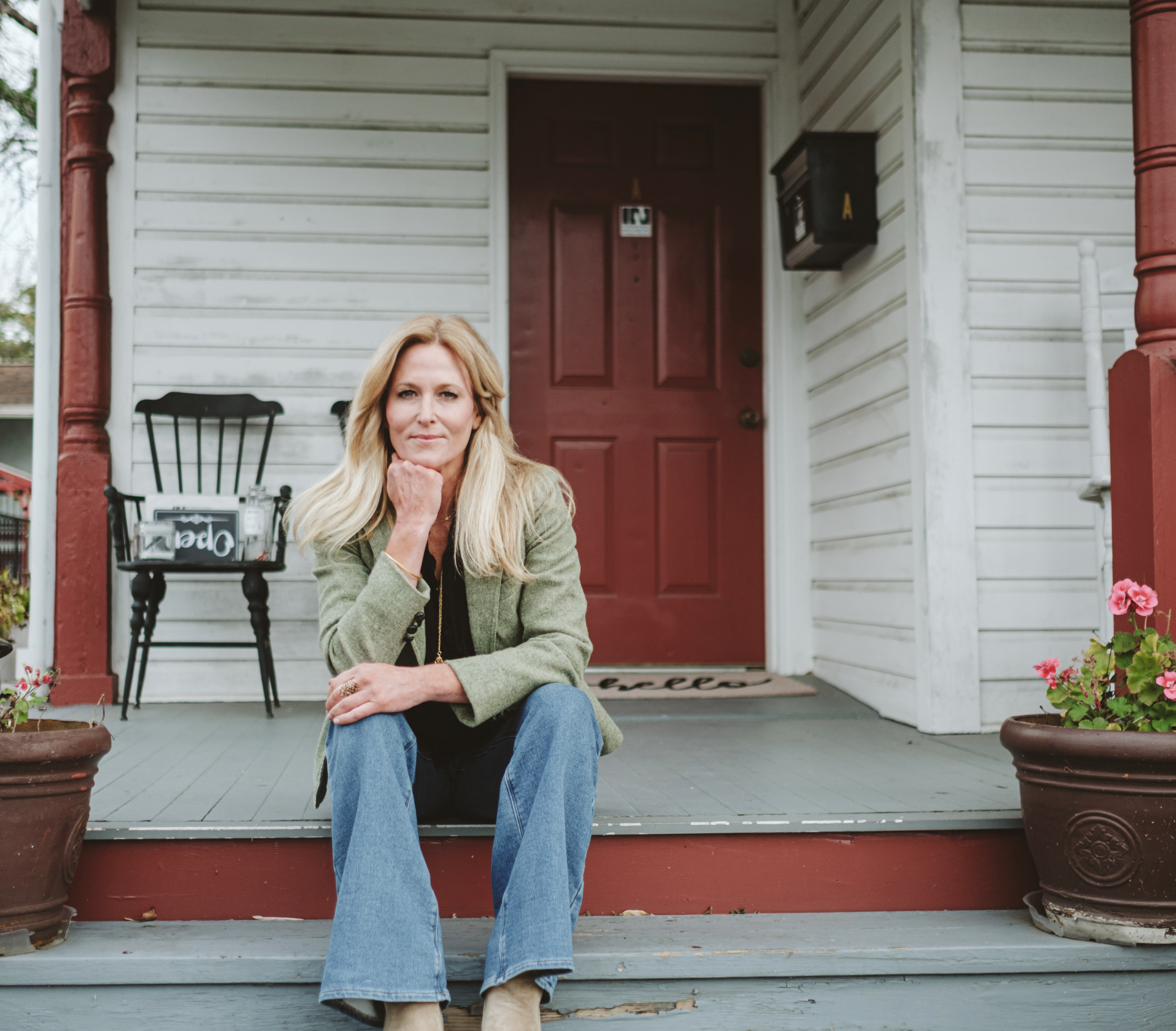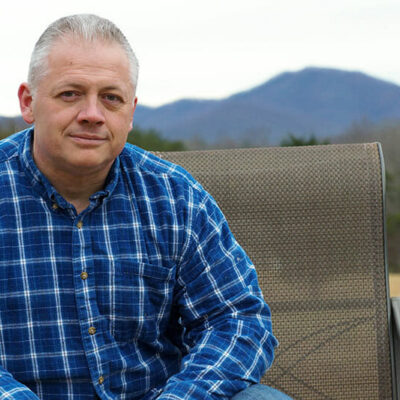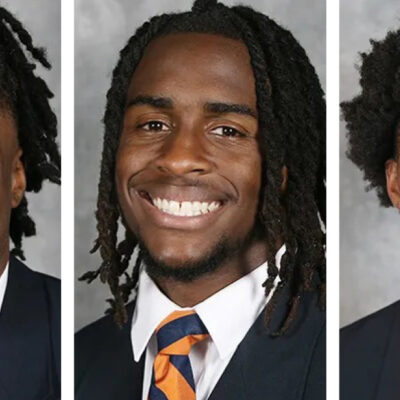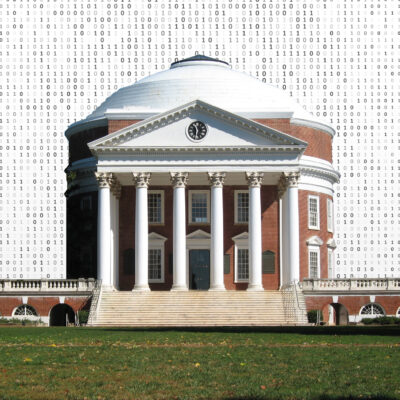“Don’t be a dick.”
That’s the ask from Kari Anderson Miller, a former Greenbrier Elementary School teacher and Peace Corps alumna who started the nonprofit International Neighbors a decade back.
Her initial intent—to tether newly resettled refugees in Charlottesville to community members who’d help them adjust—meant to ease newcomers into their first exciting, bewildering, sometimes breathtaking months in the U.S. as they tussled with microwaves, air conditioners, public transportation, new jobs, and English mastery. Just neighbors, says Miller, helping neighbors.
But the flow of refugees stopped with President Donald Trump. On his first day in office in January 2025, Trump suspended all refugee admissions into the U.S. through executive order, and now is poised to shift both how many and who among the world’s nearly 43 million refugees is eligible to resettle in a country once known as the world’s melting pot.
The expected outcome, to begin in early 2026, is likely to slash refugee admissions to the U.S. by 95 percent, from 125,000 a year to just 7,500 with priority given to refugees “who can fully and appropriately assimilate.”
About 3,000 refugees live in greater Charlottesville, an American city with deep ties to the International Rescue Committee. And as 2026 nears, Miller, the nonprofit she created, and the 517 families it helped acclimate to life in Central Virginia, hold their collective breath as America continues to shift away from its sanctuary identity. And that may signal the end of International Neighbors’ work, and become a turning point for a city that once celebrated its diversity as a strength.
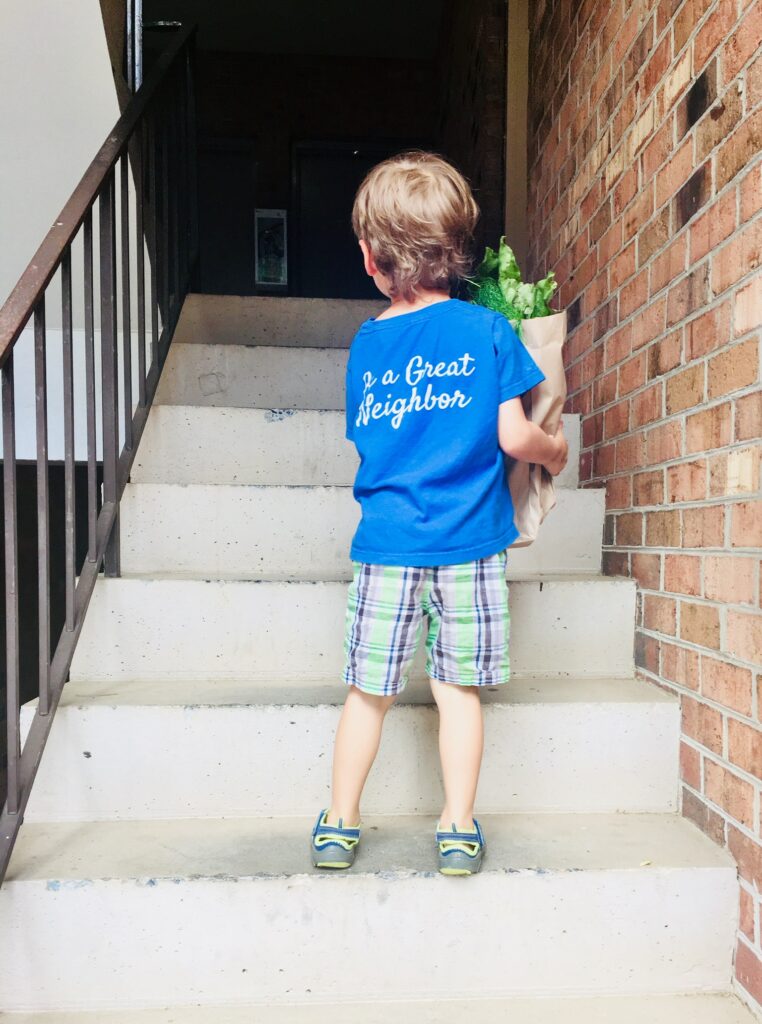
C-VILLE Weekly: Ten years is a long time.
Kari Anderson Miller: Yeah, 11-11 was our anniversary. A whole decade. Can you believe it?
Describe what International Neighbors does.
We do a lot of things, but mostly, we’re like Big Brothers Big Sisters, and match family to family, individual to individual. It’s extremely beneficial for both parties; those relationships are invaluable. When we launched 10 years ago, that first year, we had 40 families—referred to us mostly by teachers, doctors, and nurses. Today, we’ve served a total of 517 families from 19 countries speaking 24 languages who have been matched with someone familiar with American norms and traditions—families that’ve been given a hand up, not a hand out, and are thriving members of our community.
International Neighbors focuses on helping in the early days after refugees’ arrival. Why’s that important?
Because you can’t build on broken. As an educator, I was always amazed when I’d receive a student who was a newcomer in kindergarten, first grade, second grade, or third grade whose family, say, had fled a war, who’d lived in camps for years, and then finally, they’re approved to resettle. … As teachers, we saw the despair and isolation these families experienced once they arrived. By the time they’re asking for help, it’s clear they’ve arrived in America having overcome so incredibly much.
Refugees go through extreme vetting. All your DNA is checked to make sure you’re not related to a terrorist, or that you’d never ever had a connection to anybody who might wish ill on America. Most can’t live in their home country—most from Afghanistan, most from Iraq—because they’re considered traitors: They helped America, were recruited by U.S. forces to be on the frontlines, and did it. Most also arrive in debt because all of them have to pay for their airfare to get themselves and their families here.
The resettlement process is intense. But I can’t express or stress just how brilliant, patriotic, and generous these people are: not much to give but they’d give anything, anything at all, and are truly slammed headfirst into systems they don’t understand. I just knew that there had to be a better way to help them begin a new life. Especially in such a resource-rich town.
So: International Neighbors. We come into someone’s most vulnerable, exposed, confused, depressing time and tell them that it will be okay, and to show them the best of humanity, because they’ve already seen the worst of it.
What do refugees need when they arrive?
They’re blinking into the light, completely. They’ve never been on an airplane, and they come to America, and are met at the airport and brought to their new home, and often hear from the resettlement agency, “Here’s the key. Good luck. We’ll be in touch.”
These families have no idea how to work an oven or a microwave, no idea how to flush the toilet. One family I visited, their apartment was so hot because they’d pushed the AC unit button all the way to the right. Another had been here six years and they were still filling up buckets in the bathtub and bathing like they did in the refugee camp. To hear them gasp when they saw how the shower worked!
Charlottesville is one of 23 cities in the U.S. where refugees are resettled because UVA offers a lot of jobs, there’s healthcare—we’re fortunate to have some built-in things that make it a welcoming place. What’s not accounted for as much, though, is the incredible cost of living here, especially for a family that’s learning a new language. They’re dealing with so much information that’s new, they’re often leaving behind people they love and all the things they knew … things we just cannot imagine.
Maybe four years ago, during COVID, at least four refugees that I knew who had been resettled to Charlottesville, who landed first so high and full of hope, became so desperate after a time that they took their own lives. One drove the family car into Chris Greene Lake. He was the oldest, 21, he had five siblings, and his mother is heartbroken. We introduced his mother to another local woman who’d lost her son to suicide, and they embraced, and even though they didn’t share the same language, and just to have that connection—well, it gives me goosebumps. That’s community.
We Americans are so good at compartmentalizing our lives. We say, “We don’t want to impose! We feel funny.” Good gracious, impose! They would love it. They would love nothing more. So many times, if there was just one good neighbor who said hello, and smiled in that universal language … well, a lot of misunderstanding and pain could be alleviated.
How has 2025 been different?
Yeah, 2025. I knew how much work it took the first time Trump was elected, but I’ve always been proud to educate people in our community, to answer their questions. “No, sir, the wall at the border isn’t going to impact my job.” “No, ma’am, families from Norway aren’t refugees because they didn’t flee a war.” “No, sir, they don’t have to worry about ICE invasions because they’re here legally.” But 2025 gets more and more full of surprises and events that are unfair and don’t make sense. And that heightens the fear … fewer than 1 percent of refugees worldwide ever get resettled, so the folks here are really the cream of the crop. But we’re getting fewer and fewer, and in 2025, we’ve resettled zero so far.
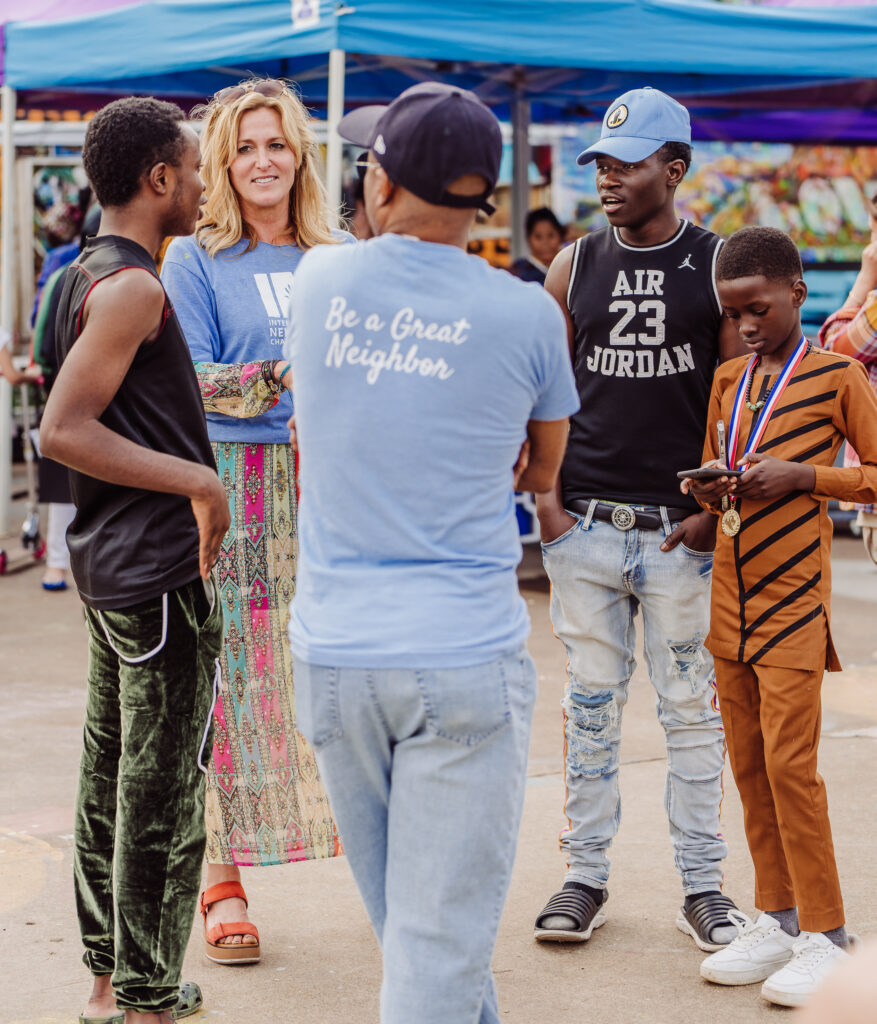
What will fewer refugees mean?
We’ll see industries really suffer. Jobs will go unfilled. Prices will rise. The landscape we all love that’s often cared for by immigrants—jobs that these people are expected and are eager to do, but now are not allowed to, because there is not that flow of people to fill those positions.
Will people connect the two?
Only if the president states it. I don’t think most people connect anything, cause and effect, or comprehend even what voting for a person really impacts the people in their communities.
In 10 years, have there been things that’ve surprised you?
I’m surprised when I hear people say, “Sure, sure, we love diversity! But I don’t want to see it or smell it or hear it.” Ten years later, I realize how many people and systems have that same feeling. Yes, we want immigrants here to work the jobs we don’t want to do … but we don’t want to hear about it.
It’s sad to see that a lot of places like Charlottesville that tout such inclusivity and access and it just doesn’t come to fruition. And all of us are complicit. Diplomacy is really dangerous. Heather Heyer’s famous quote was, “If you’re not outraged, you’re not paying attention.” I feel like a lot of what we do at International Neighbors is to get people to pay attention.
The little white short bus we use to transport refugee kids, we’ve had a gun pulled out on our driver. We’ve had people flick us off. I heard a woman calming her husband down one night when we took kids to the bowling alley in the bus. She said, “No, no, honey, it’s a supper club,” and he said, “It’d better be.”
I had no idea how much courage it would take to run a nonprofit because I’d just assumed that people genuinely cared about neighbors, and people in our paths, and on our paths. Aren’t we all going toward the same things—for our families to have enough?
But our client base isn’t the squeaky wheels. It’s why the greater community doesn’t know about neighbors that need to borrow pliers to yank out their own rotting teeth or die by suicide. It’s a lot of, ‘mine, mine, mine.’
So what’s to come for International Neighbors as an organization?
We’ve cut what we can cut. People rebuilding their lives really do need assistance … and we’re saying no a lot more often than before, and that’s hard. I no longer earn a salary, and our few staff members have gone from full- to part-time. I told my staff, “I will do my best to pay you through 2025, but surviving this political regime again as an organization will be difficult.”
I always thought, “We’re all in this together.” As soon as I got nonprofit status for International Neighbors, became a 501(c)(3), someone from another nonprofit said to me, “As long as you don’t take my donors.” I thought she was joking.
You created an organization with a pretty pure and direct purpose…
And people were supposed to like it!
…so what do you want to happen now?
For people to care about the folks around them. For people to be great neighbors. For people not to be a dick. For them to talk and connect with people even if they don’t speak English. Because we’re capable of living a life that’s not based on fear.
There was a man from Syria we helped resettle who was walking to work at the UVA laundry and got hit by a car, and he was in a coma for four months. I’ll never forget this woman who was his manager, Rhonda, that I met … and she loved Faraz. She’d come and visit him. The family wasn’t going to pull the plug, people from his mosque who prayed over him, and do you know today he’s not just the father of two but of three, he drives for Uber Eats, and while he’s not 100 percent, he came through it.
But she had friends who told her, “Let him die! Pull the plug, because we don’t need any more Muslims here.” She couldn’t believe it. She told me, “I don’t know how you do what you do.” She lost friends.
But I’m going to say it like it is, because at this point, I don’t know what else to say: Systems here are not set up for folks to be able to survive. All we’re trying to do is to keep America the melting pot that it’d been, to keep it colorful and not just white. Or orange.
And not being a dick is free; it doesn’t cost a damn thing.
So, what does 2026 hold?
I feel like there will be one less nonprofit organization in Charlottesville. And International Neighbors isn’t the only one facing cuts. I think Charlottesville will become a lot more bland, and I don’t know how it’s going to look but I might maybe need a job. And one for five other awesome women.
To keep our 501(c)(3), we have to have a mission. Here we are, 10 years later, and our mission is not being met in a town that’s a good place to start a nonprofit … but ours has the word newcomer in it, and if we’re not getting newcomers, then we’re going to have to dissolve an organization made to serve them.
Here we are in November, and we’ll need to decide what exactly will be happening in 2026 as an organization, but for the folks who leave me messages, who stop by, leave us notes, that we’re saying no to, all we can do is try to be great neighbors. And if that permeates society, little by little, once you know your neighbor, and have that proximity, you’re not going to hate or fear them. You’re going to be astounded that you ever, ever, ever thought that they were less than.
“At the end of the day, there’s always something to focus on and be grateful for,” said one of the refugees I know, who saw a family member hanging from a tree, alive, and had to watch him be slaughtered. And what was done to his poor loved one’s body he had to watch because, “They would not even let me close my eyes.” But he had to be grateful.
“Wow, what a bright color red, the blood of my brother,” he told me.
Oh, my God, I’m a white girl in America. I’ll be okay, I can’t complain about shit. So I’ll be grateful for the time we had as an organization even if we have to dissolve after a decade.
